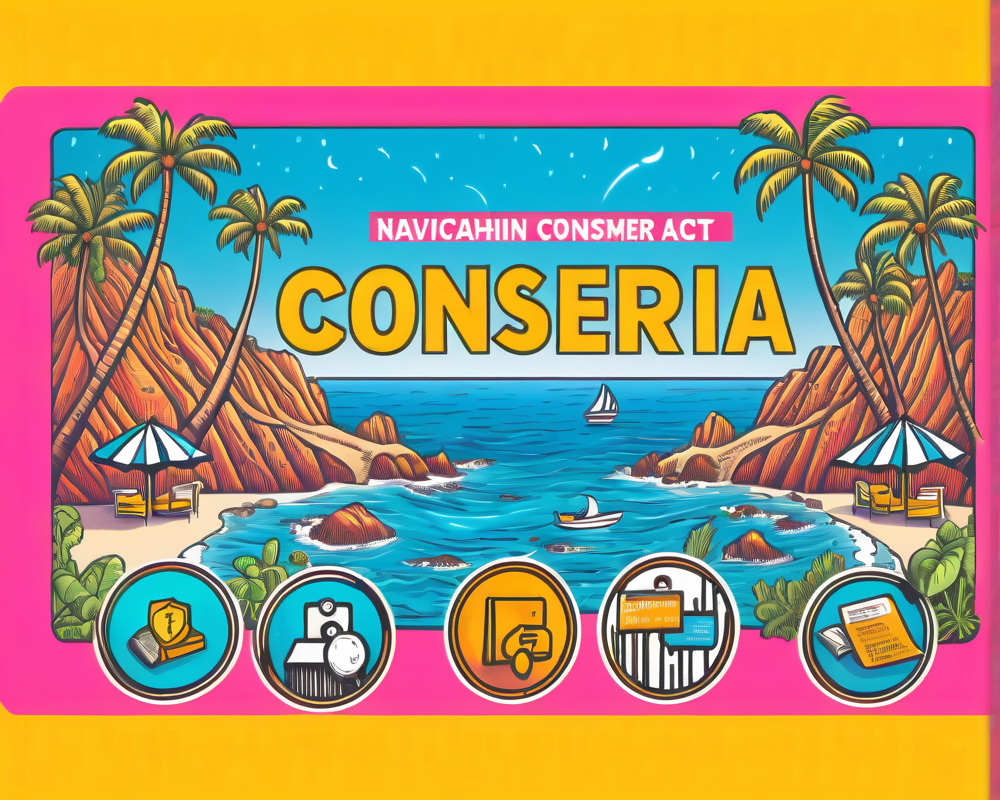Understanding the CCPA and Its Significance
The California Consumer Privacy Act (CCPA) was a game changer when it first came into play. Implemented to enhance consumer privacy rights in California, it echoes sentiments similar to those of the European Union with its General Data Protection Regulation (GDPR). Under this act, consumers have gained a new arsenal of rights over their personal data, so it’s crucial to understand what CCPA entails.
Key Provisions of the CCPA
Businesses labeled as “covered” are required to provide:
- Clear disclosures regarding personal information collection (Cal. Civ. Code § 1798.100).
- Expanded disclosures about personal data usage (id. § 1798.110).
- Notification on the sale or sharing of consumer data (id. § 1798.115).
- Options to opt out from the sale of personal information (id. § 1798.120).
- Stricter guidelines for minors regarding their data (id. § 1798.120(c)).
- A mechanism for consumers to access and delete their data (id. §§ 1798.105, 1798.100(d)).
Additionally, businesses must not discriminate against consumers exercising their rights, which adds another layer of compliance challenges.
Blockchain’s Clumsy Dance with the CCPA
Blockchain technology is like that friend who shows up to a party but doesn’t fit in with the crowd. On one hand, blockchain advocates for greater control over personal data, but on the other, it faces the daunting task of complying with laws designed for traditional, centralized data models. The fundamental principles of decentralized networks clash with the CCPA’s expectations.
Challenges of Decentralization
Since the CCPA presumes traditional data management structures, incorporating blockchain can make compliance tricky. The law’s extensive definitions lead to ambiguity regarding what constitutes “personal information,” making it tough to fit blockchain into its framework.
Are Blockchain Businesses Under CCPA’s Umbrella?
If your business is built on blockchain, then don’t roll your eyes just yet; you might still fall under the CCPA’s jurisdiction. For a business to qualify, it must meet at least one of the following conditions:
- Annual gross revenue exceeding $25 million.
- Processing personal data of over 50,000 consumers, households, or devices.
- Generating over 50% of revenue from selling consumer data.
The definition of “doing business” opens up even more questions concerning whether a blockchain platform is covered, especially if it services Californian consumers.
Avoiding Personal Information Pitfalls
Due to the broad definitions in the CCPA, practically any interaction on a public blockchain could be seen as sharing personal information. For blockchain companies, securing compliance involves creatively safeguarding data.
Potential Strategies for Compliance
To navigate these challenges, blockchain businesses could consider:
- Off-Chain Storage: Keeping personal data off the blockchain while utilizing the ledger for tracking could mitigate compliance issues.
- Data Obfuscation: Implementing techniques like encryption and hashing on data stored on-chain can help reduce the risk of reidentification.
- Early Compliance Steps: As pointed out by experts, companies demonstrating proactive compliance measures could fare better in evaluations of their adherence to the CCPA.
Despite the hurdles of compliance, it’s vital for blockchain firms to take the CCPA seriously. Ignoring it could result in hefty fines and damage to reputation, and let’s face it, no one wants to be that company in the headlines for a data mishap!
Wrapping Up: A Cautionary Tale
As the CCPA evolves, blockchain businesses must keep their heads in the game and stay informed. Uncertainty may lurk around every corner, but with creativity and a proactive compliance strategy, you can turn potential pitfalls into opportunities. It’s time to embrace the complexity and find a way to shine in the CCPA spotlight!



